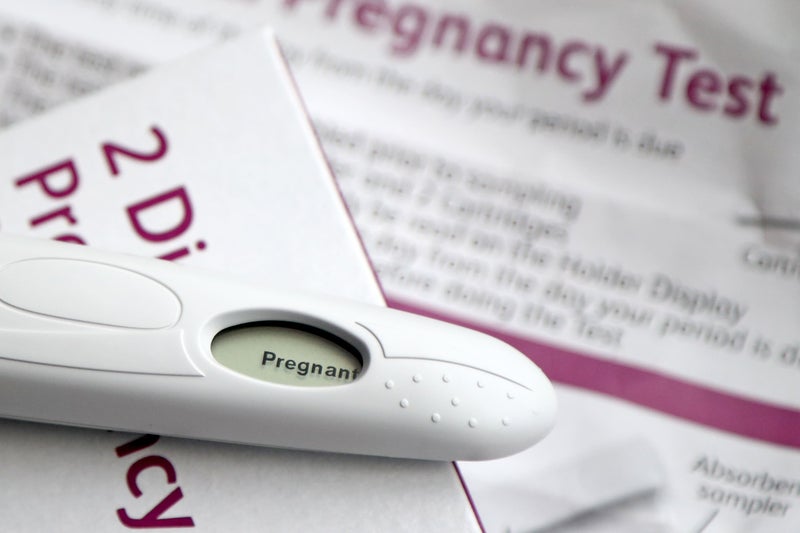We sort the scientific facts from the misconceptions. It can take around three menstrual cycles for someone’s expected fertility to return once they stop taking the pill, but there’s no long-term impact. In fact, around 83% of women get pregnant within the first 12 months after coming off the pill. Why, then, do 69% of college students worry that it’ll affect their future fertility?. “The pill masks changes in your natural cycle. So when you stop taking it, you may see symptoms that indicate shortened cycles or painful periods,” says Dr Danielle Lane, an obstetrician and gynaecologist, fertility specialist and medical director at Lane Fertility Institute in California. These are often mistaken for side effects of coming off the pill.
![[Fertility myths]](https://i.guim.co.uk/img/media/79b4bf3e2a52420473fbfcec1202e246c5c87a13/0_275_4133_2701/master/4133.jpg?width=445&dpr=1&s=none&crop=none)
In reality, the pill can reduce the risk and slow the progression of endometriosis and polycystic ovary syndrome (PCOS). Many people don’t realise that they have a condition that affects their fertility until they stop taking the pill and the symptoms are no longer masked. Around 17% of adults (one in six) experience infertility, meaning they don’t conceive after 12 or more months of regular unprotected sex. And there’s “male factor fertility” – problems related to sperm, sperm production and the reproductive tract – present in around 50% of these cases.
“This means that men should be evaluated as a part of a fertility assessment and women should not be treated until their partners have been seen,” Lane says. “Since women carry pregnancies, we often think of fertility as a female problem. This results in tremendous guilt and stress in women who feel that they are solely responsible for not conceiving.”. “Fertility decreases every year but there isn’t a fertility cliff that women fall off at age 35,” says Eve Feinberg, professor of obstetrics and gynaecology at Northwestern University, Illinois. “There’s a steeper decline at age 38 and again after 40, but none of these are cliffs.”.
It’s more of a gradual slope. For women aged 30-34 with no known history of infertility, endometriosis or PCOS, one study found that the chance of getting pregnant is 87%. For 35-40 year-olds it’s 76%; and for 40-41 year-olds its 53% . “Some men can continue to father children into old age – look at Charlie Chaplin and Mick Jagger. However, not all men remain so fertile,” according to Kevin McEleny, consultant urologist at Newcastle Fertility Centre.
Dr Sami Almusawa, medical director and fertility consultant at the Plan Your Baby telehealth clinic says: “Sperm quality – including motility (movement), morphology (shape) and DNA integrity – deteriorates over time. Testosterone levels also gradually decline from around age 30, impacting sperm production.” Plus, as men get older, there’s an increased risk of genetic abnormalities. Almusawa adds: “Although men in their 40s, 50s or beyond can still father children, conception may take longer, and there is a higher risk of miscarriage or complications.”.
“In women under the age of 35, success rates can be quite high (more than 50-60% per cycle) depending on the specific diagnosis and the embryology lab used,” Lane says. “However, in women over the age of 40 success rates can be low (less than 10% per cycle).” So the biggest predictor of success in most IVF cases is the age of the egg. The average age of someone undergoing IVF is now 36, compared with 31 for those conceiving naturally. Lane says delaying treatment and thinking of IVF as an easy solution is a problem. “IVF was originally designed to bypass fallopian tubes that were blocked either by disease or tubal ligation (contraception),” she says. “It was not designed to address age-related fertility, endometriosis and other causes such as fibroids and polyps.” Although she has seen IVF work for people in their mid-40s, “it required multiple rounds and these women had genetically high egg counts to begin with. While this is amazing, it shouldn’t be assumed that IVF will be successful in this age group.”.
“For most people, the chance of pregnancy is close to zero in the first couple of days of menstruation when bleeding is heaviest. But the risk increases with each successive day, particularly for those with shorter cycles,” says Dr Ippokratis Sarris, a consultant in reproductive medicine at King’s College hospital, London. “If someone has unprotected sex towards the end of their period, sperm could survive long enough to fertilise an egg released during early ovulation.”.
For those who are trying to avoid pregnancy, the misconception that menstruation and fertility are mutually exclusive “creates a false sense of reassurance that it’s entirely safe to have unprotected sex during this time”. And if you’re trying to conceive? Having sex during your period is unlikely to lead to pregnancy. Sarris says you’ll have more luck on the most fertile days of the cycle: “The three to four days leading up to ovulation and including the day of ovulation itself.”.































